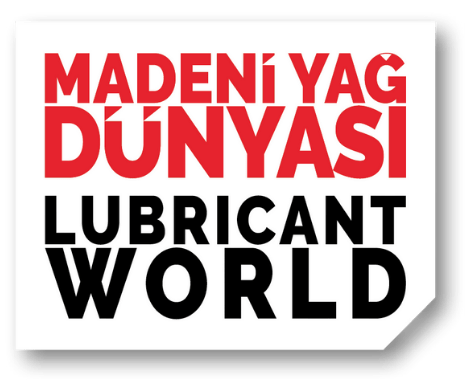Dr. Eyüp Şimşek – Chemvisor General Manager
- Regulation on TURKISH REACH
The regulation amending the Regulation on Registration, Evaluation, Authorization and Restriction of Chemicals (TURKISH REACH, (Official Gazette (O.G.) dated 23.06.2017 and numbered 30105 (Repeated)) entered into force after being published in the Official Gazette dated 23.12.2023 and numbered 32408 [1].
In line with the amendment prepared by the Ministry of Environment, Urbanization and Climate Change (MoEU, Ministry), the deadlines for registration according to tonnage ranges and classifications of substances have been revised in order to support the registration process and legislative alignment. The updated deadlines for registration are given below:

Due to the lack of sufficient progress in the TURKISH REACH registration process due to various difficulties, the current situation has been evaluated by the Ministry and the deadlines for registration have been updated to ensure sufficient time. Following the relevant amendment, an announcement was published by the Ministry to provide brief information on why the deadline for registration was updated and the opportunities that the update brings to facilitate the registration process [2]. According to the announcement:
- The joint registration process (such as leader selection, data and cost sharing) should be carried out within the framework of the procedures and principles to be published by the Ministry as a result of the studies carried out in cooperation with the Union of Chambers and Commodity Exchanges of Türkiye (TOBB) and relevant institutions and organizations.
- The deadlines for registration have been revised to 31.12.2026, 31.12.2028 and 31.12.2030 depending on the tonnage produced or imported and the harmfulness of the substance.
- Although it is essential to use existing data within the framework of TURKISH REACH, it is aimed to enable the strengthening of the laboratory infrastructure that produces the necessary information for substances for which the necessary information is not available (within the scope of TURKISH REACH Annex VII, VIII, IX and X) by gradually extending the periods.
- In order to protect human health and the environment, it is expected to show the necessary sensitivity in fulfilling the obligations in line with TURKISH REACH and it is stated that the registration application process should be accelerated.
In addition, the Ministry is expected to announce the outcome of the studies to determine the procedures and principles specified in the amendment of the regulation.
- Suggestions for the Registration Process
In the current situation, the following issues should be taken into consideration in order to fulfil the TURKISH REACH legislation compliance obligation in a timely manner regarding the ongoing registration process on the axis of the new registration deadlines:
- The time-consuming nature of the registration process, especially in light of the recent experience that registration is not possible within a tight timeframe;
- Many external factors can influence the registration process. For example, where no Lead Registrant (LR) has been appointed, registration in the role of Lead Registrant may be required, or uncertainty may arise if no organization is willing to be LR;
- The information requirements for the lead registrant role may take a long time to provide, or it may not always be possible to access the data, or new data may need to be generated;
- If Substance Information Exchange Forums (SIEF) members are not involved in the process, data access right (LoA) fee costs may remain high.
In this context, in order to contribute to the alignment process and to fulfil the obligations, the following are necessary,
- closely monitor the registration process for relevant substances (including through involvement in SIEF communication) and identify strategic substances to proceed for registration,
- prioritization and acceleration of the registration processes, especially for substances with a high tonnage range,
- involvement in the selection of Lead Registrants through sectoral associations where necessary,
- review the hazard classification of the related substances in order to comply with the relevant registration deadline,
- if LoA fee is available, prepare additional information and documents required for co-registration (e.g. analytical study report, uses, etc.),
- deciding whether to become a Lead Registrant if there is no suitable Lead Registrant for your strategic substances,
- tonnage range and keeping importer/sub-user information up to date for relevant substances is important.
Completion of the registration process is important primarily in terms of legislative alignment. Completion of the registration of the relevant substances according to their priorities by spreading over time within the plan will provide a balanced resource and cost management distributed over the years. After the TURKISH REACH legislation alignment, the future legislation will be ready for compliance obligations. In the same way, the organization will have a status that prioritizes its obligations on sustainability, human health and environment. This will put the organization one step ahead and contribute to its competitiveness. Particularly for organizations that have to complete the registration of a large number of substances, the time saved by the postponement should be seen as an opportunity for training to build a skilled workforce (e.g. Chemical Assessment Expertise).
The steps and stages to be taken from the beginning of the registration process can be summarized as follows:
- Chemical inventory management
- Make the transition from the product basis to the substance basis (lubricant products consisting of substances with different chain lengths require correct substance identification).
- Create the TURKISH REACH substance management table based on substance × volume × supplier (≥1 ton/year).
- Analyze whether a substance is covered by the TURKISH REACH register (e.g. Polymers are exempt but monomers should be registered).
- Developing a registration strategy
- Review the supply chain to decide who is responsible for registration
- Contact the supplier(s) regarding the registration status of the substances
- Identify strategic substances to be registered
- Completion of pre-SIEF Notifications
- Completion of the Regulation on Classification, Labelling and Packaging (SEA) Notifications
- Determination of substance identity and composition (preparation of analytical work reports required for the role of lead registrant and co-registrant (CoR))
- Completion of registration processes
- Registration in the role of lead registrant: Information requirements need to be met and data access rights obtained, registration file prepared and submitted to the Ministry. In parallel with the whole registration process, SIEF communication needs to be carried out.
- Registration in the role of co-registrant: For the substances for which a lead registrant is appointed, it is necessary to follow up the SIEF communication made by the lead registrant, prepare the analytical study report for substance sameness in accordance with the substance identification form (SIP), pay the data sharing agreement and LoA fee, prepare the joint registration file and submit it to the Ministry.
- Keeping the registration file up to date
As can be seen, expert consultancy may be needed at many stages due to the fact that the relevant steps require deep legislative and technical knowledge. Due to the limited number and level of competent workforce and organizations in Türkiye, a pre-planned registration process will create a productive cooperation ground with competent consultant organizations in this field.
- Update on Regulatory Alignment of Safety Data Sheets
The amendment of the Regulation does not include an update regarding the SDS requirement (Article 27, Annex II of TURKISH REACH). As of 31 December 2023, SDSs must be prepared in Turkish by a certified Chemical Assessment Specialist (CAS) in accordance with Annex II of TURKISH REACH.
Furthermore, the impact of the amendment in the TURKISH REACH regulation on the preparation of Safety Data Sheet (SDS) was clarified in the announcement [3] dated 9 February 2024 published by the Ministry. The issues stated in the relevant announcement and their reflections on practice are given below.
Regulation in Force for the Preparation of SDS: It is emphasized that the Regulation on Safety Data Sheets for Hazardous Substances and Mixtures (SDS) (O.G. dated 13.12.2014 and numbered 29204) has been repealed in accordance with Article 64 of TURKISH REACH. Therefore, SDSs to be prepared as of 31 December 2023 must be prepared in accordance with the TURKISH REACH regulation.
Status of existing SDSs: In accordance with Article 27 (9) of TURKISH REACH, which specifies the situations requiring the update of Safety Data Sheets as a result of the update on authorization and restriction in parallel with the postponement of TURKISH REACH registration dates, it is understood that an update is not required. In addition, in accordance with “Any update following registration includes the registration number”, it is understood that an update is not required for TURKISH REACH registration numbers to be indicated on the SDS (TURKISH REACH Article 27 (10)).
SDSs prepared in accordance with the abolished “Regulation on Safety Data Sheets (SDS) for Hazardous Substances and Mixtures (O.G. No. 29204 dated 13.12.2014)” will continue to be used until the expiry date of the preparatory certificate. However, the SDSs whose preparatory certificate expires must be reprepared in accordance with Annex II of TURKISH REACH by the Chemical Assessment Specialist (CAS) certified under Annex XVIII of TURKISH REACH. It is understood that the validity of the SDSs prepared within the scope of a repealed regulation will continue, but the fact that the relevant SDS becomes incompatible with the legislation due to the expiry of the preparatory certificate period, although it contains inconsistency in itself, will be applied in the current transition period as an interim solution in parallel with the update in TURKISH REACH registration dates. With the related announcement, SDSs prepared with SDS Preparatory certificate before 23 December 2023 will need to be updated within 3 years at the latest. In addition, pursuant to Article 27 (10) of TURKISH REACH, when new information that may affect risk management measures or new information on hazard classification is obtained, when an authorization is granted or denied, when a restriction is imposed, existing SDSs must be updated and communicated free of charge in writing or electronically to current and former buyers supplied in the last 12 months.
Notification of SDSs to the Ministry: In accordance with the relevant announcement, Safety Data Sheets must be notified to the Ministry through the Safety Data Sheet Notification system from the Integrated Environmental Information System (IEIS). Notifications within this scope must be made on behalf of the Facility(s) belonging to the organization.
Conclusion
At this stage, due to the fact that the TURKISH REACH registration process could not be completed at the expected level, TURKISH REACH registration deadlines have been arranged by the Ministry on the basis of tonnage range and hazard classification. In order to ensure that the amendment on registration deadlines does not cause complacency in terms of legislation compliance and to prevent similar problems as the relevant deadlines approach, it is important that registration strategies are established and time planning is made by the obliged organizations. The complexity of the registration process and its dependence on external factors also increase its significance.
In addition, the Ministry should follow up the publication of the procedures and principles regarding data sharing and common registration processes specified in the regulation. On the other hand, the procedures should be carried out by taking into account the announcements made by the Ministry for the preparation and provision of SDSs in compliance with the legislation. SDSs should be notified to the Ministry (uploaded to the system). Updated SDSs should be provided when necessary, within the scope of the announcements.
Completion of registrations within the updated deadlines is an opportunity to bring products to the market in compliance with legislation, competitiveness, uninterrupted production/trade, protection of human health and the environment, sustainability, balanced labor and cost planning and readiness for subsequent regulatory obligations (e.g. registration of polymers).




